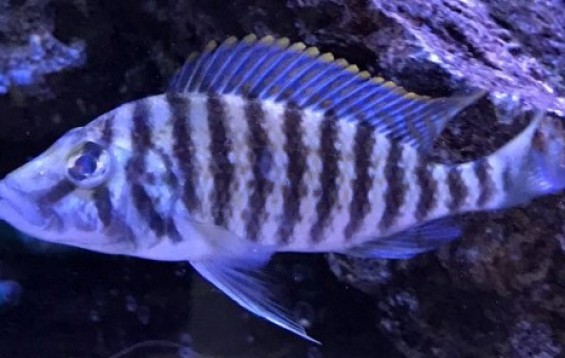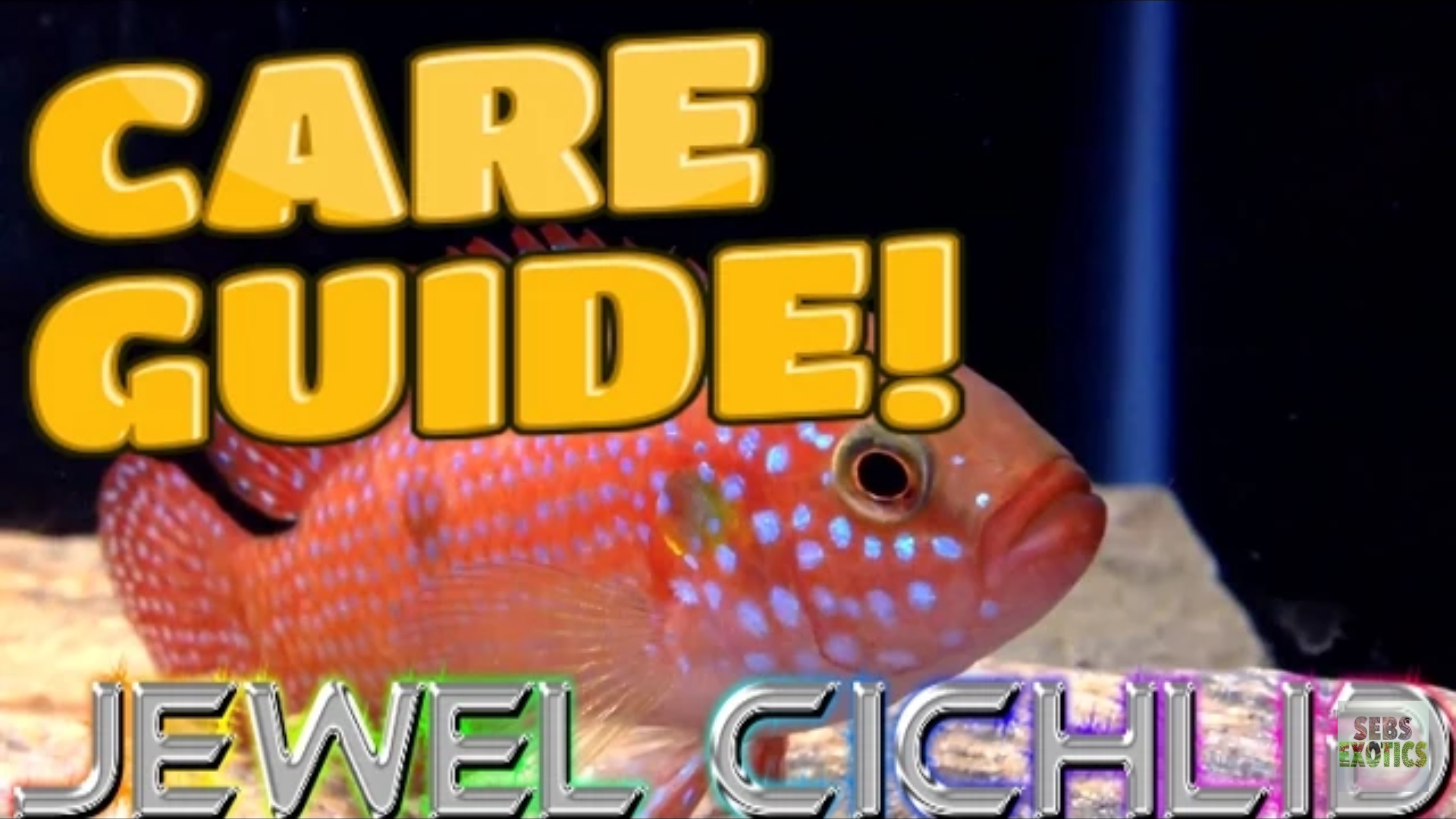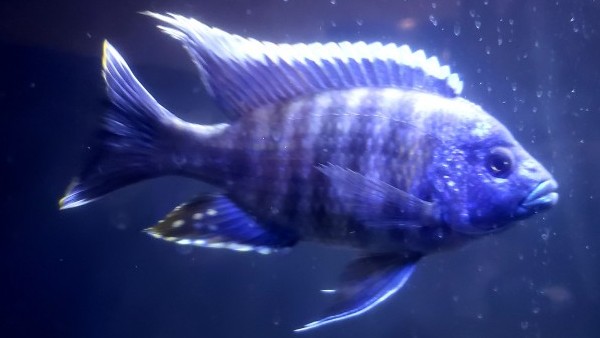- Name:
Lobochilotes labiatus
(View AKA's) - Family: Cichlidae
- Species: African Cichlids
- Scientific Name: Lobochilotes labiatus


More Details
General info about Lobochilotes labiatus
Lobochilotes labiatus, commonly known as Kissing Gourami, is a freshwater fish species from Southeast Asia. They are named for their unique behavior of “kissing” or sucking on objects and other fish in their environment. They are popular in the aquarium trade and can be kept in home aquariums.
Kissing Gouramis have an elongated, laterally compressed body with a distinct hump on their forehead. They can grow up to 12 inches in length in the wild, but usually only reach about half that size in captivity. They have a silver-gray base color with dark brown to black stripes and spots on their sides. Their lips are large and fleshy, hence their name “kissing” gourami.
Kissing Gouramis are generally peaceful and can be kept with other peaceful fish of similar size. They are social and should be kept in groups of at least four individuals to prevent aggression between them. They are also known to be good jumpers and require a tight-fitting lid on their aquarium to prevent escape.
Lobochilotes labiatus Diet & Nutrition
Kissing Gouramis are omnivorous and will eat a variety of foods including live, frozen, and flake foods. They should be fed a diet that includes both plant matter and protein. A varied diet will help to keep them healthy and vibrant.
Determining Sex of Lobochilotes labiatus
Male and female Kissing Gouramis are difficult to distinguish visually. Males may have a slightly more pointed dorsal fin, while females may be rounder in the abdomen. Males may also have more intense coloration during breeding.
Breeding & Spawning Lobochilotes labiatus
Kissing Gouramis are bubble nest builders and will construct nests of saliva and bubbles at the surface of the water. Males will lure females to the nest and the two will spawn, with the male fertilizing the eggs as they are released by the female. The male will guard the nest until the eggs hatch, which typically occurs within 24-36 hours.
Common Diseases with Lobochilotes labiatus
Kissing Gouramis are susceptible to a variety of diseases including bacterial and fungal infections, as well as parasitic infections. It is important to maintain good water quality and a healthy diet to prevent disease.
Lobochilotes labiatus Origin
Kissing Gouramis are native to Southeast Asia, specifically Thailand, Indonesia, and Malaysia.
Caution with Lobochilotes labiatus
Kissing Gouramis can become aggressive towards other fish if they feel threatened or are not kept in proper social groups. They are also prone to jumping and require a tight-fitting lid on their aquarium to prevent escape.
Acclimating Lobochilotes labiatus
When introducing Kissing Gouramis to a new aquarium, it is important to acclimate them slowly to prevent shock. The drip acclimation method is recommended, where water from the aquarium is slowly added to the bag containing the fish over a period of 30-60 minutes.
Relevent Articles
Original Detail
| Name | Species | Family | Scientific Name | More Detail | Added by |
|---|---|---|---|---|---|
| Lobochilotes labiatus | African Cichlids | Cichlidae | Lobochilotes labiatus | Lobochilotes labiatus, commonly known as Kissing Gourami, is a freshwater fish species from Southeast Asia. They are named for their unique behavior of “kissing” or sucking on objects and other fish in their environment. They are popular in the aquarium trade and can be kept in home aquariums. Kissing Gouramis have an elongated, laterally compressed body with a distinct hump on their forehead. They can grow up to 12 inches in length in the wild, but usually only reach about half that size in captivity. They have a silver-gray base color with dark brown to black stripes and spots on their sides. Their lips are large and fleshy, hence their name “kissing” gourami. Kissing Gouramis are generally peaceful and can be kept with other peaceful fish of similar size. They are social and should be kept in groups of at least four individuals to prevent aggression between them. They are also known to be good jumpers and require a tight-fitting lid on their aquarium to prevent escape. | PalaciosAn |
Changed by users
| Submitted Date | Submitted By | Status | Action |
|---|






